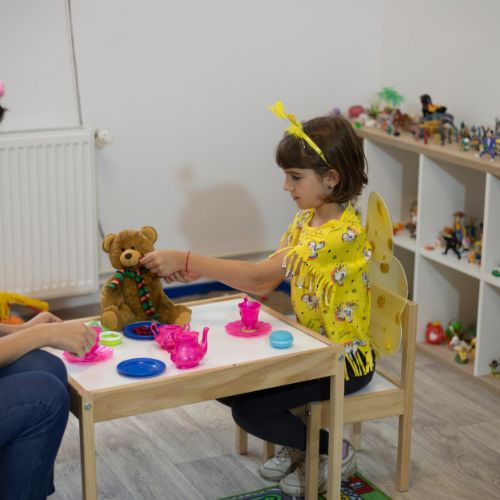
Understanding the Benefits of Therapy for Kids and Young Adults: How It Works and What to Expect
As kids and young adults navigate the challenges of growing up, it is not uncommon for them to experience a range of emotional and psychological difficulties. From anxiety and depression to learning and behavioral disorders, these issues can impact their daily lives and relationships with others. Fortunately, therapy offers a safe and effective way to address these challenges and build resilience for the future. In this blog, we will explore the benefits of therapy for kids and young adults, how it works, and what to expect.
What is Therapy?
Therapy, also known as psychotherapy or counseling, is a form of mental health treatment that involves talking to a trained professional about your thoughts, feelings, and behaviors. Therapists use a variety of techniques to help clients understand their emotions, develop coping skills, and make positive changes in their lives. Depending on the client’s age, goals, and preferences, therapy may involve individual or group sessions, play therapy, cognitive-behavioral therapy, or other approaches.
Benefits of Therapy for Kids and Young Adults
Therapy can offer a range of benefits for kids and young adults, including:
Improved emotional regulation: Therapy can help kids and young adults learn to identify and manage their emotions in healthy ways. This can lead to reduced anxiety, depression, and other negative feelings, as well as improved self-esteem and social skills.
Enhanced problem-solving skills: Kids and young adults who participate in therapy may develop better problem-solving skills and decision-making abilities. This can help them navigate challenges in school, at home, and in their relationships with others.
Better academic performance: Therapy can also help kids and young adults overcome learning challenges and perform better in school. By improving their focus, attention, and executive function, therapy can help them achieve academic success and reach their full potential.
Increased resilience: Kids and young adults who participate in therapy may develop greater resilience, which is the ability to bounce back from setbacks and cope with stress. This can help them navigate life’s challenges with greater ease and confidence.
Stronger relationships: Therapy can also help kids and young adults build stronger relationships with their peers, parents, and other important people in their lives. By improving communication skills and promoting empathy, therapy can help them form deeper and more meaningful connections with others.
How Therapy Works for Kids and Young Adults
The process of therapy for kids and young adults may look different than it does for adults. Here are some key things to know:
It’s collaborative: Therapy is a collaborative process between the therapist, the client, and often the client’s family. The therapist works with the client to identify goals and develop a plan for achieving them.
It’s age-appropriate: Depending on the client’s age and developmental stage, therapy may involve play therapy, art therapy, or other creative approaches. These techniques can help kids and young adults express themselves in ways that feel safe and comfortable.
It’s structured: Therapy sessions typically follow a structured format, with specific activities or exercises designed to address the client’s goals. The therapist may also assign homework or suggest activities to practice outside of therapy.
It’s confidential: Like all mental health treatment, therapy is confidential. This means that the therapist will not share the client’s information with anyone without their permission, except in cases where there is a risk of harm to themselves or others.
What to Expect from Therapy
If you’re considering therapy for your child or young adult, here are some things to keep in mind:
It takes time: Therapy is not a quick fix, and it may take several sessions or even months to see significant progress. Be patient and encourage your child to stick with it.
It may be challenging: Therapy can sometimes bring up difficult emotions or memories, and your child may feel uncomfortable or resistant at times. It’s important to reassure them that these feelings are normal and part of the process.
Trust the therapist: It’s important to find a therapist that your child feels comfortable with and trusts. This may take some time, but it’s worth the effort to find the right fit.
Be involved: While therapy is confidential, it’s important for parents to be involved in the process. This may involve attending sessions, communicating with the therapist, and supporting your child outside of therapy.
Celebrate progress: Celebrate your child’s progress, no matter how small. This can help build their confidence and motivation to continue with therapy.
Conclusion
Therapy can offer a range of benefits for kids and young adults, from improved emotional regulation to stronger relationships. By providing a safe and supportive environment for clients to explore their thoughts and feelings, therapy can help them develop the skills and resilience needed to navigate life’s challenges. If you’re considering therapy for your child or young adult, be patient, be involved, and trust the process. With the right support and guidance, therapy can make a positive difference in their lives for years to come.


